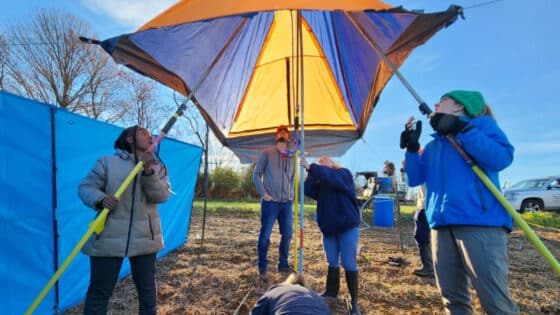Zampella, R.A., C.L. Dow, and J.B. Bunnell. 2001. Journal of the American Water Resources Association 37(5):1189–1201.
doi: 10.1111/j.1752-1688.2001.tb03631.x
Abstract
The ability of regulators, resource managers, and consultants to assess accurately wetland hydrology is crucial when identifying and delineating wetlands. In this study, simple linear regression and long-term (ten year) New Jersey Pinelands stream gaging and pitch pine lowland water-level data sets were used to estimate long-term hydroperiods at lowland test sites with short-term (two year) records. Separate regression equations were developed for each test site using reference site data and stream gaging data, and two sets of equations for selected test sites were produced using two different short-term periods of record. Test sites had long-term records ranging from four to ten years, allowing validation of the regression models. Measured and predicted test site growing season water levels were similar regardless of which short-term period of record was used. The results based on the stream gaging site data were similar, although the difference between measured and estimated growing season water levels was greater when this approach was used. Excellent agreement was found between measured and estimated frequencies of near-surface saturation at test sites for each growing season month, and these relationships improved when cumulative, seasonal frequencies were considered. The reference wetland approach used in this study may have its greatest value in regions with both high development pressures and problem wetlands and may provide an effective way of resolving costly wetland delineation disputes.


